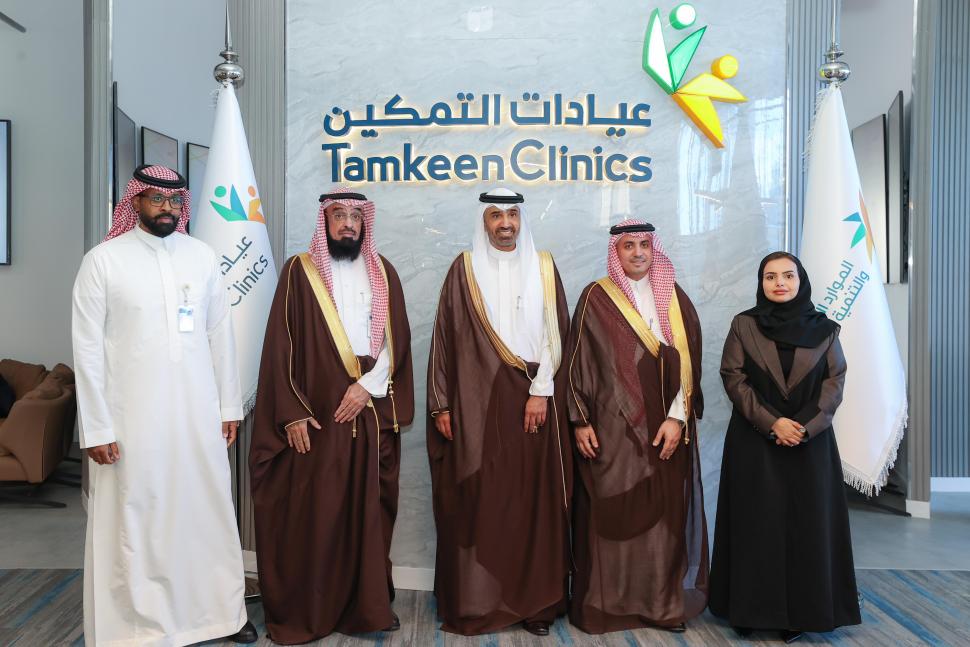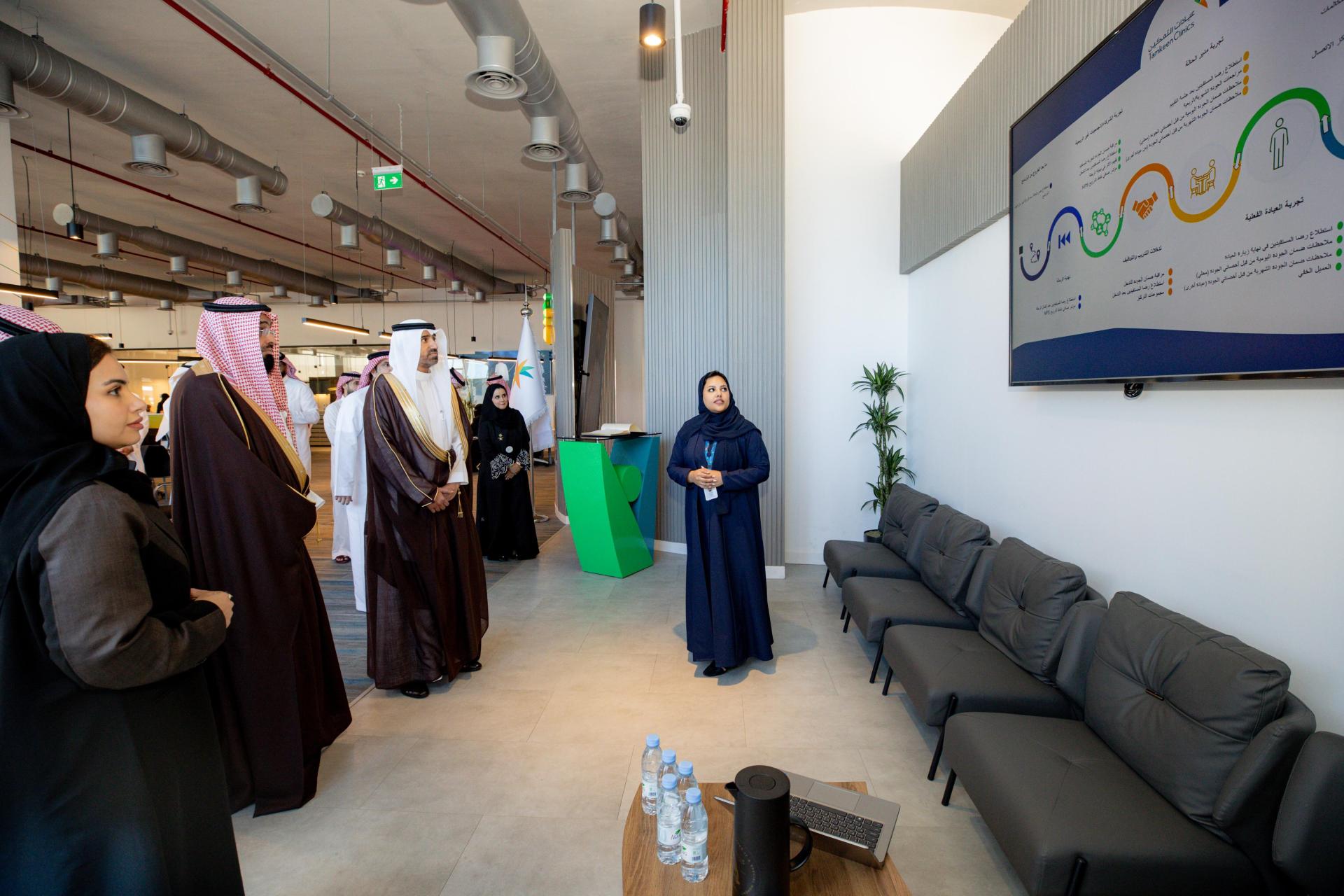
His Excellency Minister of Human Resources and Social Development, Engineer Ahmed bin Sulaiman Al Rajhi, inaugurated the “Empowerment Clinics” for social security beneficiaries in Riyadh, which is an innovative model in applying modern empowerment principles and concepts, and includes several tracks represented in ( vocational and financial counseling, mental health promotion, employment, entrepreneurship, qualitative training, physical health promotion, learning support, housing services, and legal support).
The development plan achieves its objectives by guiding the beneficiaries of the clinics through five main stages starting from communication, awareness, registration, case study, service delivery, follow-up and monitoring. The clinics also focus on enhancing community participation through cooperation with non-profit organizations, companies, educational and government institutions, in addition to developing and building the capacities of their case managers to provide high-quality services to beneficiaries.
During the inauguration tour, His Excellency Al Rajhi reviewed the services provided to beneficiaries in the clinics and the work procedures followed, praising the role of the clinics in enhancing opportunities to empower social security beneficiaries and develop their career paths; emphasizing that these clinics will effectively contribute to providing innovative solutions, enhancing support for beneficiaries, achieving integration between government efforts and the non-profit sector, as well as investing and developing human capital. He also pointed to the importance of continuing work to generate such services to achieve the Ministry's strategic objectives in the National Transformation Program, which is to empower citizens through the social services system.
It is noteworthy that the empowerment clinics for social security beneficiaries target seven regions around the Kingdom: Riyadh, Eastern Province, Makkah, Aseer, Jazan, Madinah and Najran, and serve as integrated social service centers that apply the best global and local practices in managing the case of the social security family as a whole and empowering its eligible members; by providing various social and economic development interventions and community cooperation to them directly, or through partners to meet their needs.

